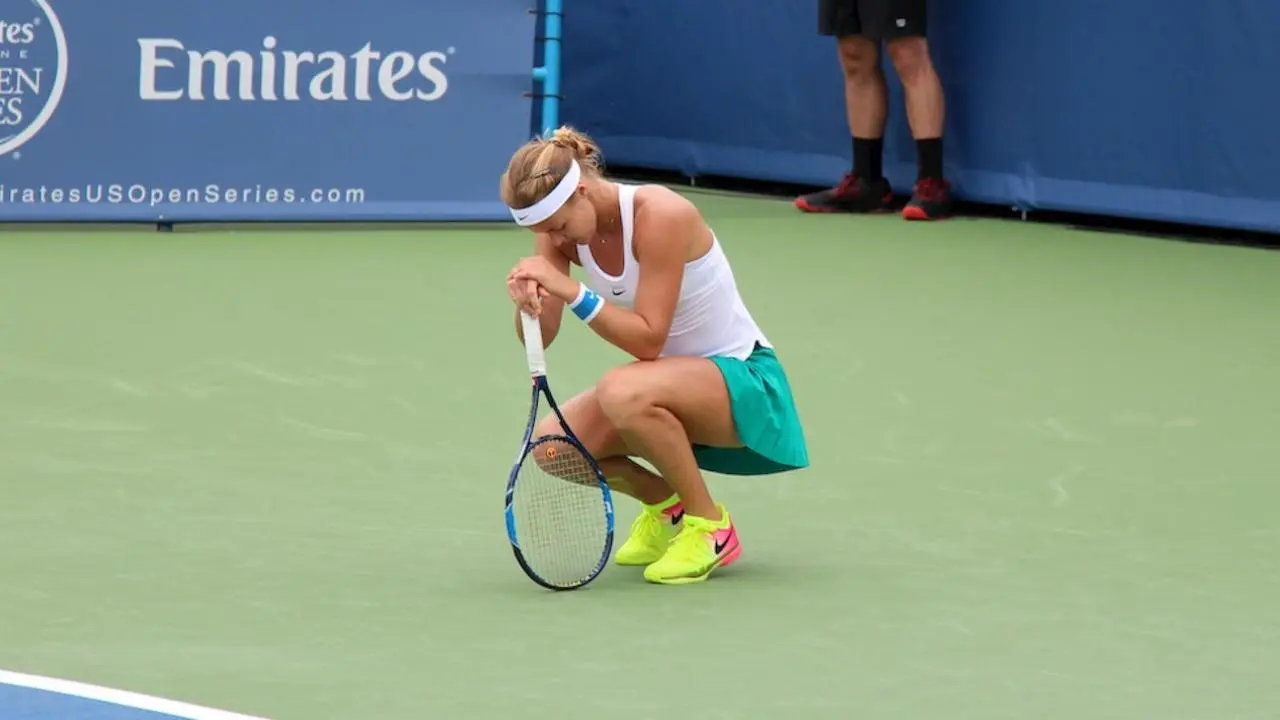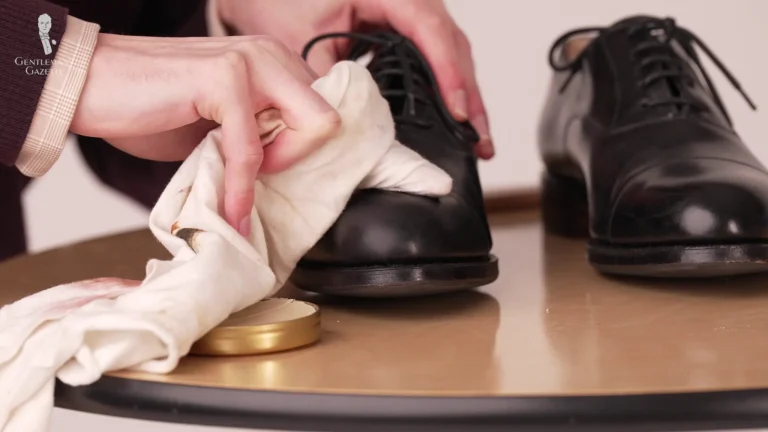Mental Toughness In Tennis
In the world of tennis, mental toughness plays a crucial role in determining a player’s success. It refers to the ability to stay focused, resilient, and positive in the face of challenges and pressure. Developing mental toughness is essential for tennis players, as it can greatly impact their performance on the court.
In this article, we will explore the concept of mental toughness in tennis and understand why it is so important. We will delve into the psychological challenges that tennis players often encounter and discuss the common mental obstacles they face. Additionally, we will provide practical strategies and techniques to help players develop and enhance their mental toughness.
The Mental Game in Tennis
When it comes to tennis, the mental game is just as important as the physical skills. The mental aspect of the game refers to the psychological challenges that players face on the court. Understanding and mastering the mental game can greatly enhance a player’s performance.
One common mental obstacle in tennis is the pressure to perform well. Players may feel nervous or anxious during important matches, which can affect their focus and decision-making. Learning how to handle match pressure and stay calm under challenging circumstances is crucial for success.
Managing emotions is another key aspect of the mental game. Tennis can be an emotional sport, and players may experience frustration, anger, or disappointment during a match. Maintaining focus is essential in tennis, as the game requires quick reactions and strategic thinking.
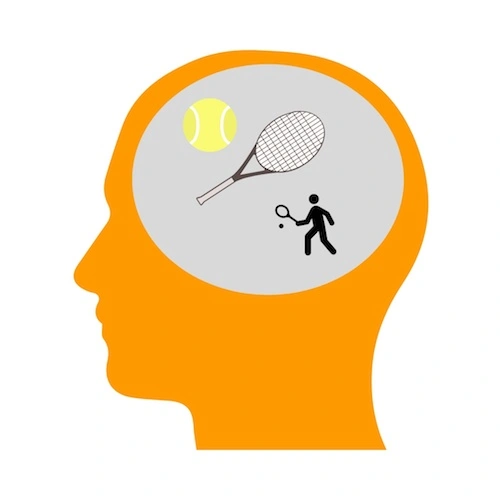
Distractions, both internal and external, can hinder a player’s concentration. Confidence plays a significant role in the mental game. Believing in one’s abilities and having a positive mindset can greatly impact performance.
Read More: How To Clean Tennis Shoes?
Read More: How To Become A Professional Tennis Player?
Developing Mental Toughness
Developing mental toughness is a crucial aspect of improving performance in tennis. It involves building resilience, maintaining focus, managing emotions, and staying positive in the face of challenges. In this section, we will explore practical strategies to help players develop their mental toughness.
Setting goals and maintaining focus is an important first step. By setting clear and achievable goals, players can stay motivated and focused on their progress. Breaking down larger goals into smaller, manageable steps can make the journey more attainable and less overwhelming.
Building resilience is another key aspect of mental toughness. Tennis can be a mentally demanding sport, and players will inevitably face setbacks and obstacles. Developing the ability to bounce back from failures, learn from mistakes, and stay determined is essential for long-term success.
Managing emotions is crucial in maintaining mental toughness. Emotions can run high during matches, and it’s important to find healthy ways to cope with them. Techniques such as deep breathing, visualization, or taking short breaks can help players regain composure and stay focused.
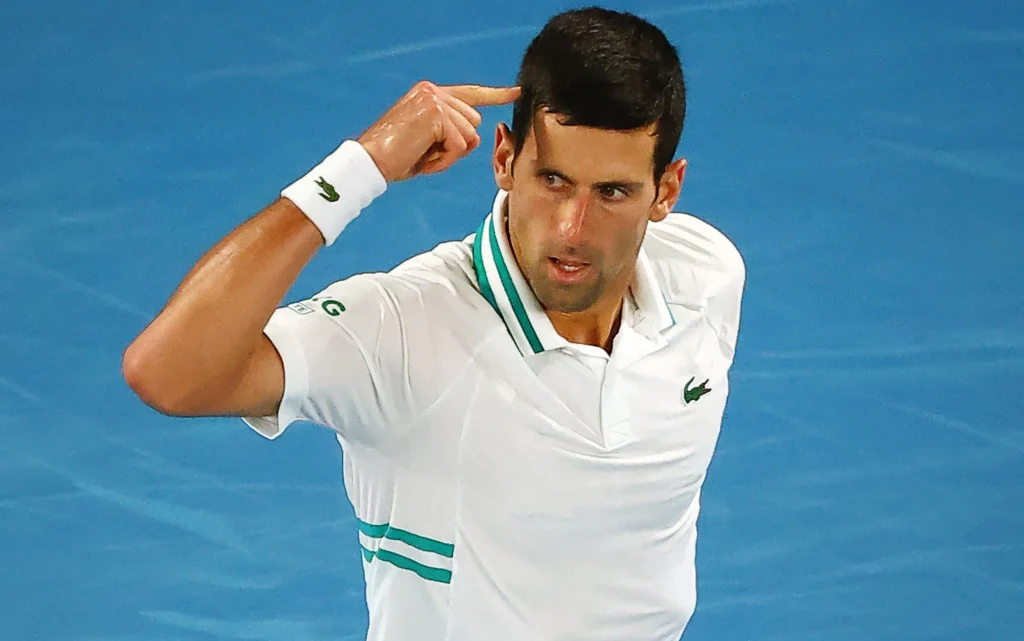
Staying positive is vital for mental toughness. Positive self-talk and affirmations can help players maintain confidence and belief in their abilities. Focusing on strengths and past successes can boost motivation and resilience, even in challenging situations.
By incorporating these strategies into their training and mindset, players can develop and enhance their mental toughness. It’s important to remember that mental toughness is a skill that can be cultivated over time with practice and perseverance.
Read More: Best Tennis Shoes For Zumba
How Do You Keep Calm And Mentally Prepare For A Tennis Match?
Keeping calm and mentally preparing for a tennis match is essential for performing at your best. Here are some strategies to help you stay calm and mentally prepared:
Establish a Pre-Match Routine
Create a pre-match routine that works for you. This routine can include activities like stretching, listening to music, or visualizing your game plan. Having a consistent routine helps you get into a focused and calm mindset before stepping onto the court.
Deep Breathing
Deep breathing exercises can help calm your nerves and reduce anxiety. Take slow, deep breaths in through your nose and exhale slowly through your mouth. Focus on your breath and let go of any tension or negative thoughts.
Positive Self-Talk
Use positive self-talk to boost your confidence and stay focused. Replace negative thoughts with positive affirmations such as “I am prepared and capable” or “I trust my skills and abilities.” Remind yourself of past successes and believe in your abilities.
Stay Present
Focus on the present moment and avoid getting caught up in past mistakes or future outcomes. Concentrate on each point as it comes and give your full attention to the task at hand. This helps you stay focused and prevents distractions from affecting your performance.
Control What You Can
Focus on the aspects of the game that you can control, such as your effort, attitude, and strategy. Let go of things beyond your control, such as the weather or your opponent’s performance. By focusing on what you can control, you maintain a sense of calm and stay mentally prepared.
Remember, mental preparation is just as important as physical preparation in tennis. By incorporating these strategies into your routine, you can keep calm, stay focused, and be mentally prepared to perform your best on the tennis court.
How Can I Improve My Mental Game?
Improving your mental game is a continuous process that requires practice and dedication. Here are some strategies to help you enhance your mental game in tennis:
Set Clear Goals
Establish specific and achievable goals for your tennis journey. These goals can be related to skill development, match performance, or personal growth. Having clear goals provides direction and motivation, helping you stay focused and committed.
Develop a Positive Mindset
Cultivate a positive mindset by focusing on the present moment and maintaining a positive outlook. Replace negative thoughts with positive affirmations and self-talk. Embrace challenges as opportunities for growth and view setbacks as learning experiences.
Practice Visualization
Use visualization techniques to mentally rehearse successful performances. Close your eyes and vividly imagine yourself executing shots with precision, moving confidently on the court, and achieving your desired outcomes. Visualization helps build confidence and enhances muscle memory.
Build Resilience
Tennis can be a mentally challenging sport, and setbacks are inevitable. Develop resilience by learning from failures, bouncing back from disappointments, and staying determined. Embrace challenges as opportunities to learn and grow, and maintain a resilient mindset throughout your tennis journey.
Stay Present and Focused
Train yourself to stay present and fully engaged in each point. Avoid dwelling on past mistakes or worrying about future outcomes. Focus on the task at hand, concentrate on your strategy, and give your full attention to each shot. This helps you stay focused and perform at your best.
Seek Support
Consider working with a sports psychologist or mental coach who specializes in tennis. They can provide guidance, techniques, and personalized strategies to help you improve your mental game. Additionally, seek support from your coach, teammates, or mentors who can offer encouragement and advice.
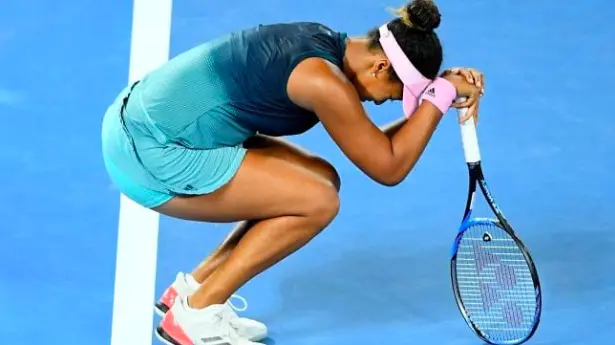
Remember, improving your mental game takes time and consistent effort. Be patient with yourself and celebrate small victories along the way. By implementing these strategies and staying committed to your mental development, you can enhance your mental game and elevate your performance on the tennis court.
How do I mentally win a tennis match?
Winning a tennis match requires not only physical skills but also a strong mental game. Here are some strategies to help you win a tennis match mentally:
Stay Focused
Maintain focus throughout the match by concentrating on each point. Avoid getting distracted by external factors or past mistakes. Stay present and give your full attention to the task at hand.
Develop a Game Plan
Create a game plan based on your strengths and your opponent’s weaknesses. Having a clear strategy helps you stay focused and make effective decisions during the match. Adapt your game plan as needed, but always have a plan in mind.
Control Your Emotions
Keep your emotions in check during the match. Stay composed and avoid getting too high or too low. Manage frustration, anger, or nervousness by using techniques like deep breathing or positive self-talk. Emotions can impact your decision-making and performance, so it’s important to stay in control.
Believe in Yourself
Cultivate self-belief and confidence in your abilities. Trust in your training and preparation. Remind yourself of past successes and focus on your strengths. Having a positive mindset and believing in yourself can greatly enhance your performance on the court.
Stay Resilient
Tennis matches can have ups and downs. Stay resilient and bounce back from setbacks or mistakes. Learn from your errors and use them as opportunities for growth. Maintain a determined and never-give-up attitude throughout the match.
Adapt to Changing Situations
Be adaptable and flexible during the match. Assess your opponent’s strategies and adjust your game plan accordingly. Stay open-minded and willing to make changes as needed to gain an advantage.

Remember, winning a tennis match mentally is about combining your physical skills with a strong mental game. By staying focused, controlling your emotions, believing in yourself, and adapting to changing situations, you can increase your chances of success on the tennis court.
Case Studies and Examples
Examining case studies and examples of mentally tough tennis players can provide valuable insights into their strategies and mindset. Here are a few notable examples:
Serena Williams
Serena Williams is widely regarded as one of the mentally toughest players in tennis history. She has consistently displayed resilience, focus, and determination throughout her career. Despite facing numerous challenges and setbacks, Serena maintains a strong belief in her abilities and a fierce competitive spirit. Her ability to stay composed under pressure and bounce back from adversity has contributed to her remarkable success.
Rafael Nadal
Rafael Nadal is known for his mental toughness and unwavering fighting spirit on the court. He approaches each match with a never-give-up attitude and a strong work ethic. Nadal’s ability to stay focused, maintain intensity, and adapt his game to different situations has helped him win numerous Grand Slam titles. His mental resilience and ability to handle pressure make him a formidable opponent.
Novak Djokovic
Novak Djokovic is renowned for his mental strength and mental fortitude. He has developed a reputation for his ability to stay calm and composed in high-pressure situations. Djokovic’s mental game is characterized by his unwavering self-belief, positive mindset, and ability to maintain focus even in challenging circumstances. His mental toughness has played a significant role in his consistent success on the tennis court.
These case studies highlight the importance of mental toughness in tennis and provide examples of successful players who have mastered the mental game. By studying their strategies, mindset, and approaches to challenges, aspiring tennis players can gain valuable insights and apply them to their own game.
Conclusion
Mental toughness is a vital component of success in tennis. By developing and enhancing mental toughness, players can improve their focus, resilience, and overall mental well-being. It is an ongoing process that requires practice, dedication, and a positive mindset. By incorporating the strategies and techniques discussed in this article, players can strengthen their mental game and increase their chances of achieving success on the tennis court.
Frequently Asked Questions
Latest Post

